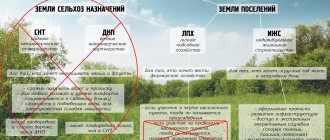Who can be attracted and for what?
Article 307 of the Criminal Code of the Russian Federation provides for criminal liability:
- For victims and witnesses – for perjury.
- For experts - for false conclusion and (or) false testimony.
- For specialists - for false testimony.
- For translators - for incorrect translation.
False testimony, expert opinion or incorrect translation must be known to be so. That is, the guilty person must understand that he is lying or, if we are talking about a translator, translating incorrectly, and must deliberately carry out such actions. Unconscious mistakes do not entail criminal liability. Including those admitted by experts, specialists or a translator due to a lack of competence, due to negligence (carelessness) or arrogance (frivolity).
A lie on the part of a suspect (accused, defendant) is lawful in any case. Such persons are not responsible for false testimony, and such testimony itself is secretly considered a method of defense. Persons who were only formally interrogated as witnesses, but in fact were already suspects and subsequently became suspects, are also not subject to criminal liability.
Article 307 has two parts. The first part provides for softer sanctions. They are prosecuted under it if we are not talking about accusing a person of committing a serious or especially serious crime. If the testimony, expert opinion, or incorrect translation are associated with such an accusation, then liability will follow under Part 2 of Art. 307 of the Criminal Code of the Russian Federation.
Responsibility under Art. 307 of the Criminal Code of the Russian Federation occurs regardless of what stage of the criminal case the crime was committed - during the investigation of the case or at the stage of its consideration by the court. Similar actions committed at the pre-investigation stage do not entail criminal liability. Here we are talking mainly about possible false explanations. A false statement of a crime filed by the victim entails liability under another article of the Criminal Code - Art. 306 (knowingly false denunciation).
Can they be charged under Art. 307 of the Criminal Code of the Russian Federation of persons who have witness immunity, including in the context of Art. 51 of the Constitution of the Russian Federation? Yes they can. The fact is that witness immunity gives the right not to testify, but if a person decides to give it, he becomes obligated to tell the truth.
Punishment for giving knowingly false testimony in criminal, administrative, civil cases
Does he face a threat of knowingly giving false testimony in a criminal trial?
The crime of submitting false testimony is classified as socially dangerous, therefore it is important that the witness is sane and understands what misinforming the investigative bodies can lead to (Article 21 of the Criminal Code of the Russian Federation). If the witness has a mental health disorder, then partial criminal liability will be imposed; the judge will determine the punishment.
Not a single citizen of the Russian Federation will be punished for giving false testimony in court. But for knowingly false information, that is, with a warning, he will receive the following:
A fine of up to 80 thousand rubles. If, during the investigation of a criminal case, he directed the authorities to the wrong place.
Work as an employee of public organizations for 15-20 days. Then, when his false testimony led the case to a dead end or the wrong direction.
Correctional labor for 2 years. This is punishable if you deceive the authorities with false information.
Arrest for 3 months. When the person who testified has confirmed the information several times before the law.
Imprisonment for up to 5 years. Then, when a witness unjustifiably accused a certain citizen of committing a serious or especially serious crime (307 of the Criminal Code of the Russian Federation).
A witness, specialist, translator, expert or victim may be confident in their testimony, but may not realize that it is false. In this case, there will be no criminal liability. Example: a witness identified the criminal by his clothing, but did not remember his face.
Anyone who admits the falsity of his testimony before a court verdict is also exempt from criminal liability.
Punishment for giving false testimony during a criminal investigation applies only to persons over 16 years of age (Part 1 of Article 20 of the Criminal Code of the Russian Federation). Their parents or guardians are responsible for the actions of young children under 16 years of age. They will also answer in court and testify for their children, or in the presence of them.
Responsibility for knowingly false testimony in court in an administrative case.
Responsibility for giving testimony invented by a witness in the event of an administrative offense occurs for persons over 16 years of age. According to the norms of the Code of Administrative Offenses of the Russian Federation, any citizen of the Russian Federation will be warned that he will be punished for submitting false information and committing a new administrative crime.
The violator of the law is expected to pay a fine of 1-1.5 thousand rubles (Article 17.9 of the Code of Administrative Offenses of the Russian Federation).
Of course, being held administratively liable does not cause serious legal problems in the future; pay the fine and the difficulties will end. However, do not forget that you will have to answer in court for possible misinformation of the investigative authorities. Practice shows that such cases are very common.
What is the penalty for giving false testimony in a civil court?
In accordance with Article 303 of the Criminal Code of the Russian Federation, any citizen over 16 years of age will be punished for knowingly false testimony. According to Part 1 of this article, if incorrect information was voiced by a participant in a civil case or his representative, he will face:
A fine of 100-300 thousand rubles, or 2 years of income of the convicted person.
Carrying out correctional work for 1-2 years.
Arrest for 2-4 months.
In the event that a prosecutor, lawyer or investigator knows about deliberately false information and covers up the illegal actions of violators, they will:
Sent to jail for up to 3 years (Part 2 of Article 303 of the Criminal Code of the Russian Federation). In addition, they may be restricted in their professional activities for up to 3 years.
Serve a prison sentence for 3-7 years and be deprived of the right to engage in certain activities (Part 3 of Article 303 of the Criminal Code of the Russian Federation). This is when falsification of evidence has led to grave consequences or the commission of new grave or especially grave crimes.
Lawyers answer the most pressing questions about giving deliberately false testimony in court:
Is it possible to renounce your false testimony in court without consequences?
Responsibility for giving knowingly false testimony and refusal to give it occurs equally only when your incorrect information caused serious consequences.
If you lied during the trial and the court found your act to be insignificant and not causing public danger (Article 14 of the Criminal Code of the Russian Federation), then you will avoid punishment.
In a civil court, the defendant knowingly gives false testimony - can he be brought to criminal liability and how?
Collect evidence (documents) that will confirm the falsity of the information given by the defendant in court.
You should report false testimony during the trial by presenting evidence yourself, or have a lawyer do it for you.
Only a judge can recognize evidence as knowingly false.
Deadline for filing an application for perjury by a witness or defendant in court
As such, your application will not be accepted. During the trial, you have the right to report false information that you know or suspect.
If a person refuses to testify in court, can he be accused of giving false testimony and concealing the truth?
Refusal to submit testimony is illegal. Such actions lead to concealment of the crime and the truth. That is why a refusing citizen of the Russian Federation will be punished under Article 308 of the Criminal Code of the Russian Federation.
In the case where a person does not want to testify against himself or his relatives, he may be exempt from criminal prosecution.
Can the plaintiff be held criminally liable for perjury, and what might be the penalty?
Yes maybe. The punishment will be determined by the court, depending on the harm caused. In case of a mild offense, a citizen of the Russian Federation will be punished with a fine of up to 80 thousand rubles (Article 307 of the Criminal Code of the Russian Federation); in case of a serious offense, he will face imprisonment for 3-7 years (Article 307, 303 of the Criminal Code of the Russian Federation).
Giving false testimony in court during a divorce - can there be criminal liability?
Of course, in a civil case, persons are held criminally liable for such a crime under Articles 307.303 of the Criminal Code of the Russian Federation. The punishment depends on the severity of the consequences resulting from knowingly false information.
A husband or wife can refuse their testimony, even if it is false, and nothing will happen to them for it (Article 308 of the Criminal Code of the Russian Federation).
Possible punishment
Punishment under Part 1 of Art. 303 of the Criminal Code of the Russian Federation - alternative:
- a fine in the amount of up to 80 thousand rubles or in the amount of salary (income) for a period of up to 6 months;
- or compulsory work for up to 480 hours;
- or correction of work for up to two years;
- or arrest for up to 3 months.
Thus, the crime falls into the category of minor gravity.
Second part of Art. 307 of the Criminal Code of the Russian Federation provides for only two possible sanctions: either imprisonment for a term of up to 5 years, or forced labor for a period within the same limits. This crime is considered a crime of medium gravity.
The subjective side of the issue
Article 307 of the Criminal Code is based on selfish intent and a deliberate desire to deceive the investigation. This means that the person giving false testimony is well aware of the possible consequences and seeks to accuse an innocent person or remove guilt from a criminal.
In this case, the motives for such actions may vary. This includes selfish intent, personal gain, personal relationships and much more. Regardless of the motives of the perpetrator, the law characterizes such actions as a serious crime. The complexity of the issue lies in the fact that it is very difficult to prove a person’s guilt:
- The witness claims that she definitely saw the accused dressed in closed clothes. Perhaps she is deliberately misleading the court or simply misunderstood. Revealing the truth is not easy.
- The witness is convinced that he heard the suspect's voice. Perhaps he just imagined it. Or maybe he decided to accuse an innocent person.
If a person gave false testimony by mistake, then criminal liability for such actions is not provided.
Release from liability
A person involved under Art.
307 of the Criminal Code of the Russian Federation, should be released from liability if he voluntarily, before the court makes a final decision (sentence) in the case, declares the falsity of previously given testimony (expert opinion or incorrect translation). This rule is established by the note to Art. 307 of the Criminal Code of the Russian Federation. The statement can be made orally, in which case it is recorded in the minutes, or in writing. Often the fact of a change in testimony is simply recorded and it is indicated that the previous ones were false for such and such reasons. This is also legal. We are talking about release from responsibility, not from punishment. In this case, the criminal prosecution and, accordingly, the criminal case must be terminated. The decision has the right to be made by the person investigating the case under Art. 307 of the Criminal Code of the Russian Federation, or the court that received the case accusing a person of committing such a crime.
To terminate prosecution (criminal case), Art. 28 Code of Criminal Procedure of the Russian Federation and Art. 75 of the Criminal Code of the Russian Federation – exemption from liability in connection with active repentance. This is a non-rehabilitating basis, that is, the person is recognized as having committed a crime, and his guilt is proven. The fact of prosecution and release from it will be entered into the database of the State Information Center of the Ministry of Internal Affairs.
Exemption from liability under Art. 307 of the Criminal Code of the Russian Federation is also possible in cases where there is no corpus delicti of this crime. Most often we are talking about the following:
- False testimony cannot be considered knowingly false.
- The evidence is more erroneous than false.
- False testimony was the result of delusion, incorrect subjective assessment, incorrect perception of the situation, etc.
- There is a fact of giving false testimony, but such testimony, as evidence, did not significantly and significantly affect the investigation of the criminal case and (or) the court’s decision (the concept of “insignificance” is applied - part 2 of article 14 of the Criminal Code of the Russian Federation).
References to the above circumstances may well be used in the defense strategy. However, the Supreme Court has repeatedly drawn attention to the fact that in such situations, if proven, there will be no crime.
The task of the investigation and (or) the court is to establish whether the testimony is false or erroneous, what are the motives for giving it, and also how significant and significant the testimony is for the criminal case. Often this point is missed, and only the fact of giving false testimony is recorded. And the defense side can also play on this.
The objective side of the issue
The objective side of the issue includes the following points:
- False testimony on the part of a victim, witness or specialist.
- False conclusion made by an expert.
- False translation.
Testimony refers to certain data told by the participants in the process. They are dedicated to a criminal act and various events that are directly related to it.
Testimony is considered criminal only if it is directly related to the investigation and may also influence the court's decision.
Translators, specialists, experts, victims, witnesses and other persons taking part in the process are clearly warned about what the giving of false testimony may lead to. This fact does not prevent many from violating the law and providing false information.
Testimony may be called false if:
- Do not correspond to the true course of events, in whole or in part.
- Relevant to the investigation. This means that these statements were included in the case as evidence. For example, if you secretly tell the investigator about what happened, then such testimony will not be valid and will not be considered false. In the concept of criminal proceedings, they simply did not exist.
If a witness or victim intentionally fails to disclose important information, this is also considered perjury.
The corpus delicti will be considered formal up to a certain point. It all depends on what stage the process is at:
- Once the witness or victim signs the report, his words come into effect (an investigation is implied).
- After testifying in court.
Arbitrage practice
False testimony can be directed not only at the defendant, but also at oneself - for example, in order not to testify against one’s friends. If the Constitution of the Russian Federation allows a witness not to testify against close relatives, then every citizen of the Russian Federation is obliged to tell all the known circumstances of the commission of a crime against his friend or good acquaintance.
Thus, the Zheleznodorozhny Court of Rostov-on-Don convicted a certain citizen A. for the fact that, being an eyewitness to the infliction of bodily harm on his acquaintances to the victim, he testified in court that he was not an eyewitness to the conflict and was at home at the time of the crime. The court found these statements to be false and citizen A. was sentenced to a fine of 4,000 rubles under Part 1 of Art. 307 of the Criminal Code of the Russian Federation, namely for perjury in a criminal trial.








